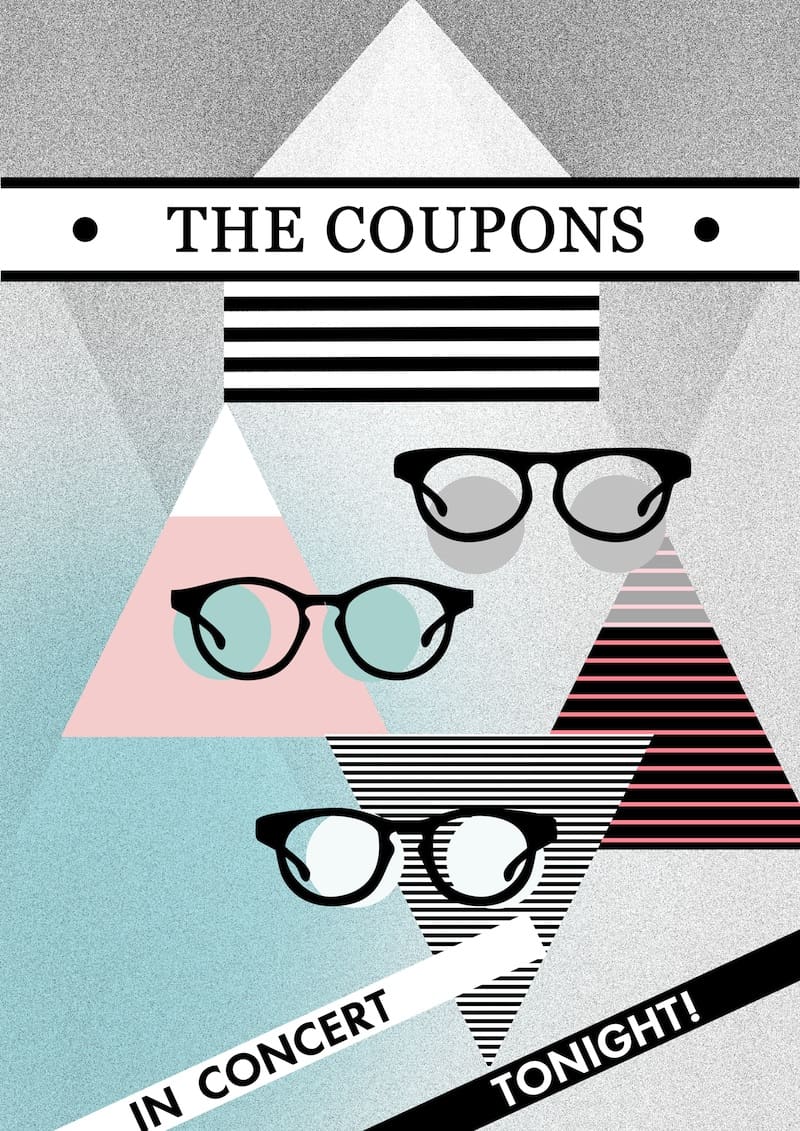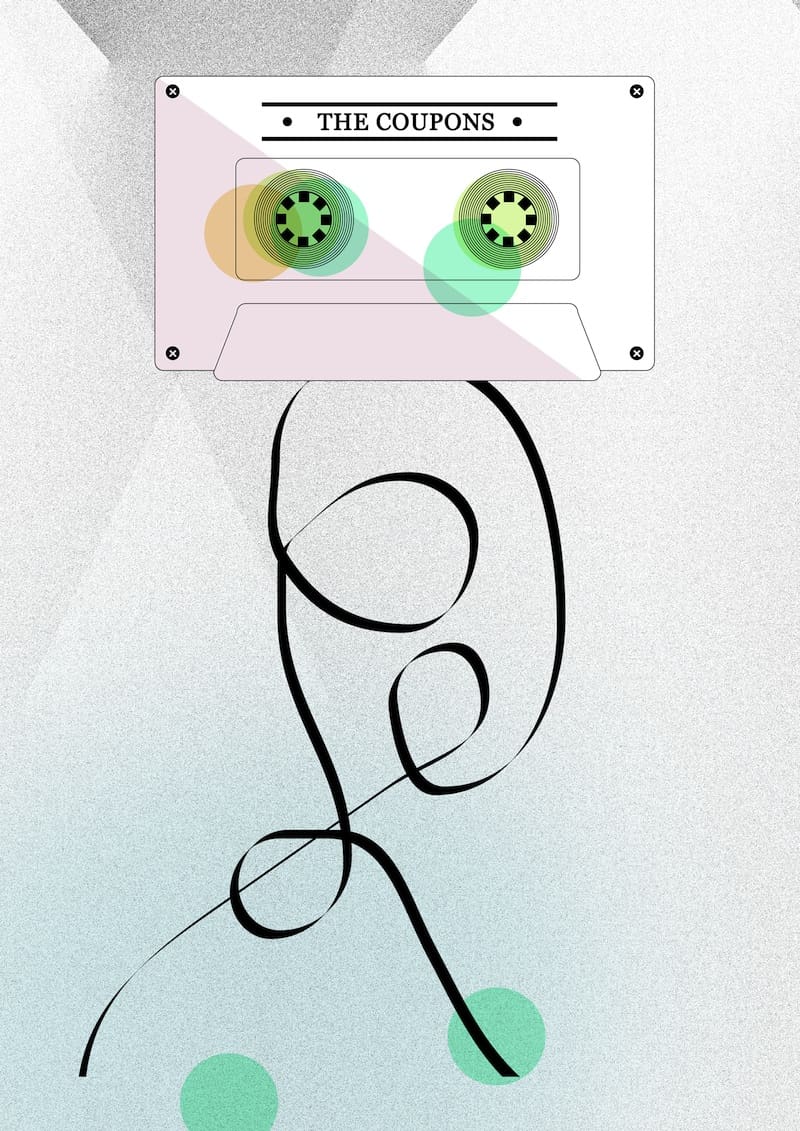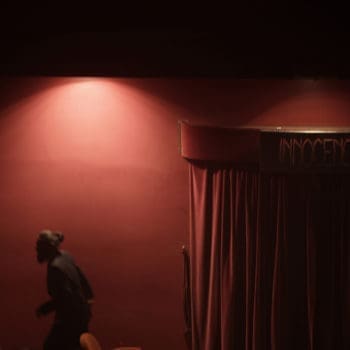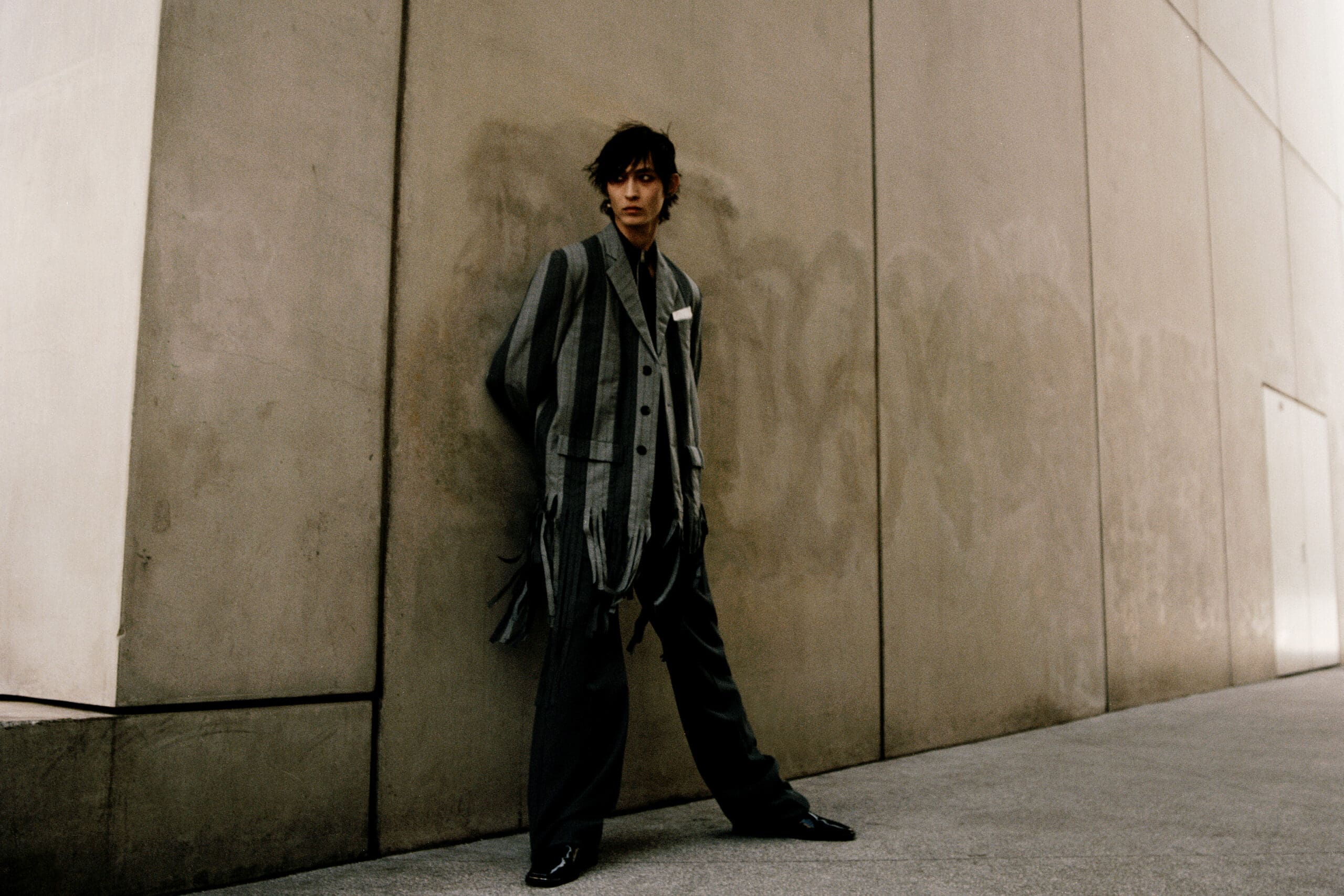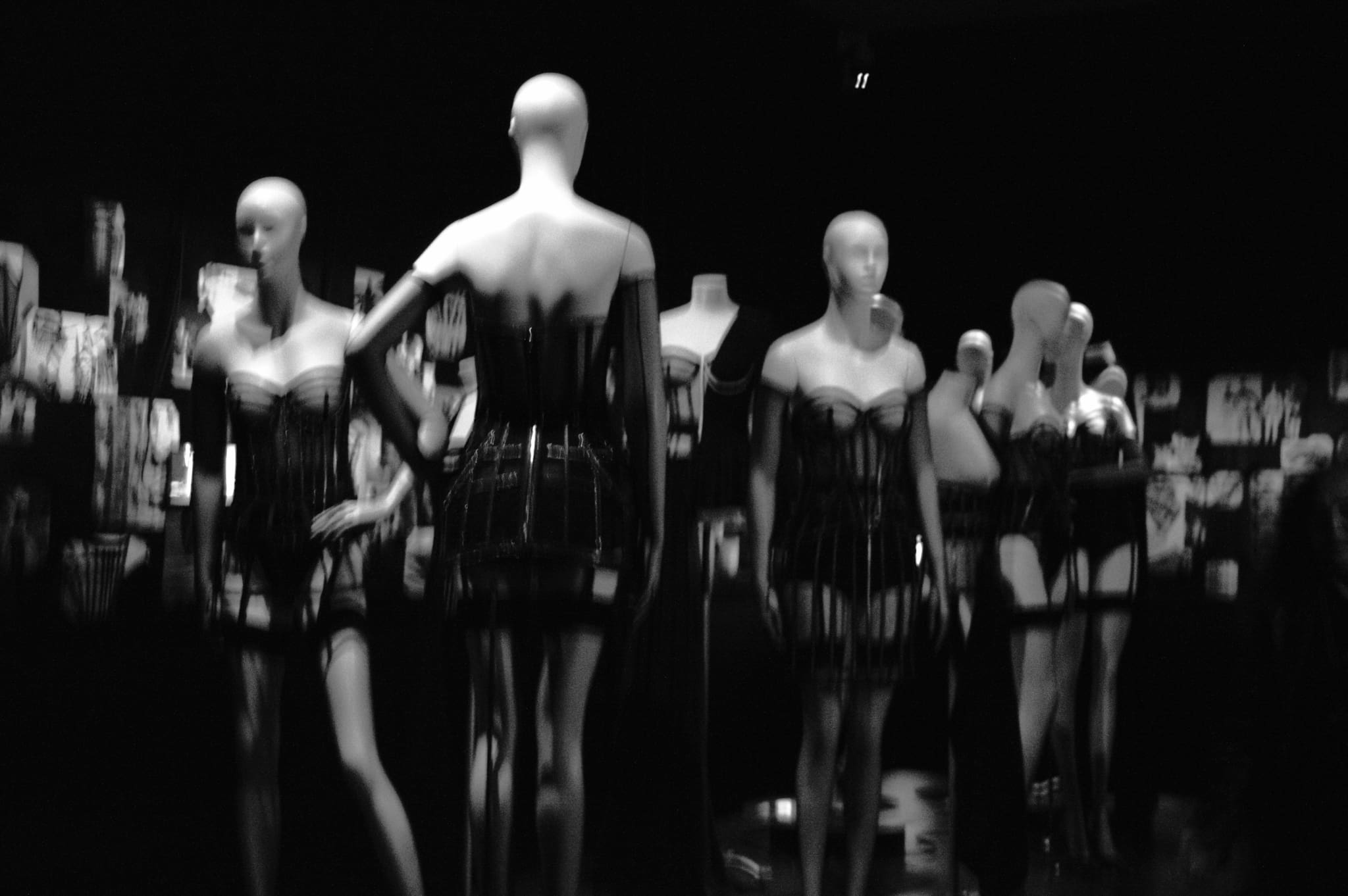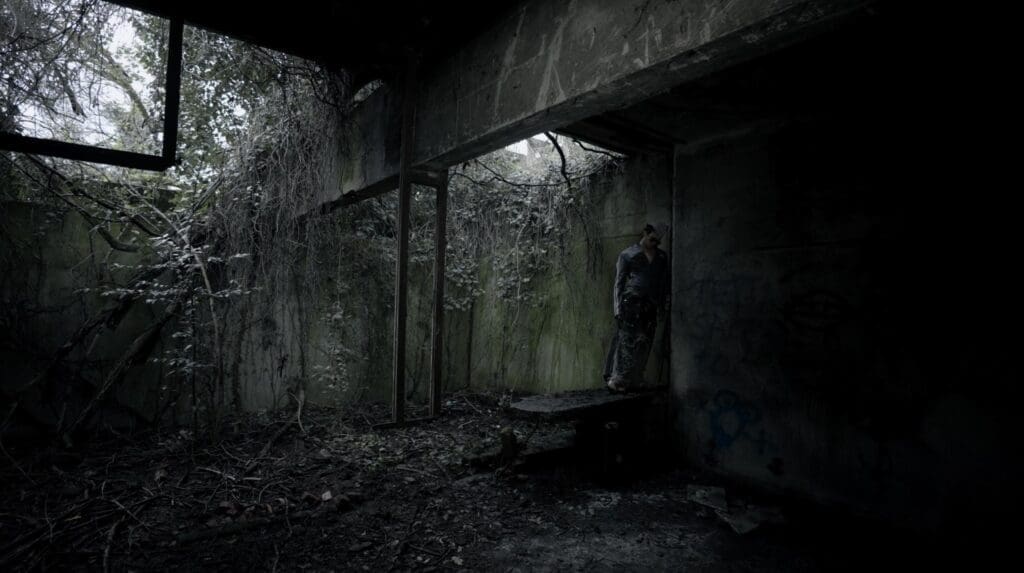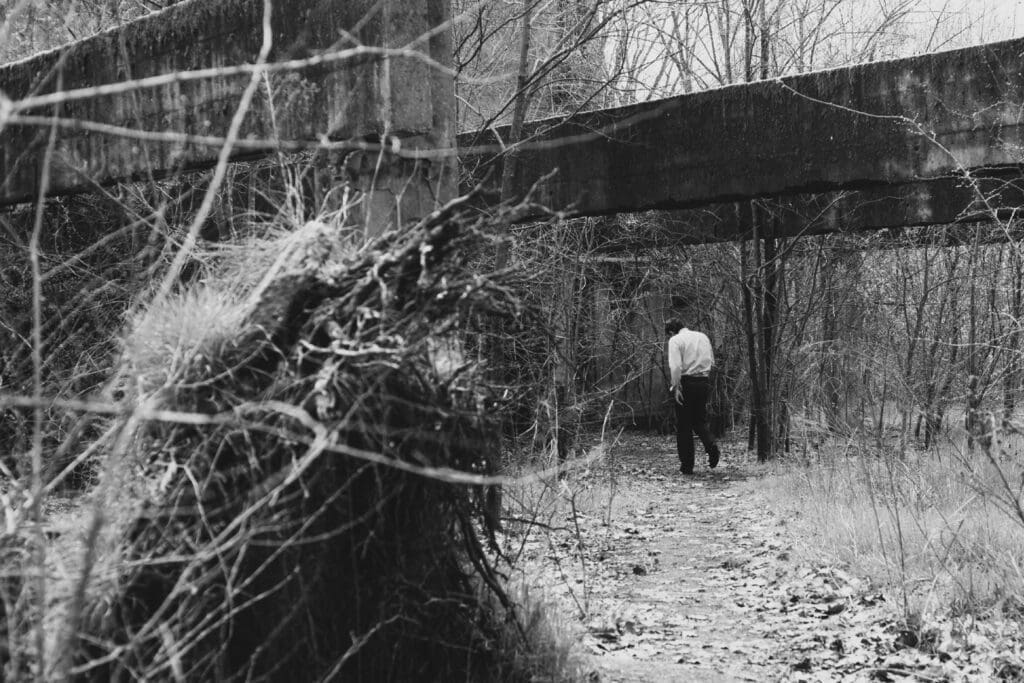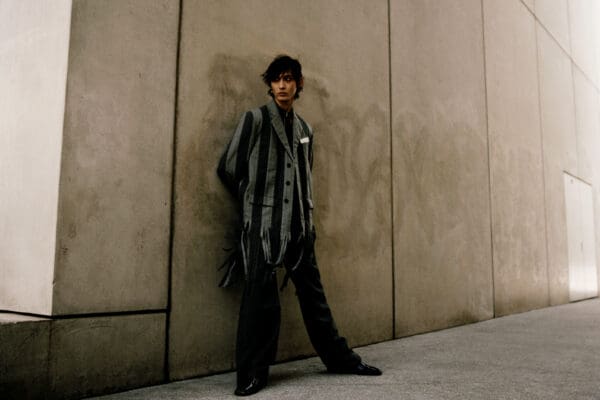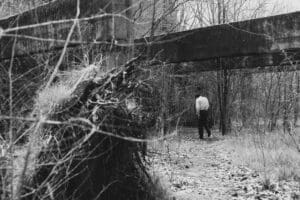by Aaron Akira
illustrator Carolina Melis
Issue VII
Among a select circle of critics, it’s often repeated that no one who ever heard a Coupons record ever forgot it, except the members of The Coupons themselves. Since their putative last gig in March of 1993, the band never again played together, or even acknowledged knowing one another. Approached separately in the fall of 2011 by myself and Akashic Records label heads Will Webster and Ken Lee about this reissue of The Coupons’ brief but undeniably vital catalog, guitarist Eric Pentz, bassist and songwriter Doug Silvers, and drummer Kieran Finn each either professed or demonstrated no recollection of their band. “How can it be re-released if it was never released in the first place?” Pentz asked, a question Webster and I initially took to be mock rhetorical.
This much we know to be true: in 1991 a cassette tape arrived at the offices of Pillowfight, the underground rock fanzine Will Webster and I founded in college. Pillowfight at that time was a two man operation, far from the juggernaut it would become in later years, following its purchase by a Korean electronics manufacturer. The Pillowfight “office” at the time was a pantry adjoining the mailroom of the publishing company where Webster and I made booze money as junior readers. We gave the interns free albums and concert tickets in exchange for telling no one about the gunny sacks of jewel-boxes and slipcases we received each week, C/O Shortstop Press. (“Foremost among tri-state publishers of baseball fiction and Revolutionary War correspondence.”) Among all the rearguard Madchester non-starters and the tinny domestic slow-core we frisbeed straight to the interns, the Coupons cassette stood out for its lack of a return address or contact info. Webster and I had a good laugh about the group’s oversight, and it was chiefly out of pity for the poor no-hopers that we first gave the tape a listen.
For the next thirty-five minutes, rock would never be the same again. Webster described the cassette in the subsequent issue of Pillowfight as “Like the first Feelies record, rewritten by John Steinbeck and played to ghosts in an empty arena.” My own review arrived a month later in one of the city’s weekly papers. I took a different tack, no less enthusiastic: “It’s as if the Heartbreakers were backing John Milton,” I wrote. “Soaring, angelically melodic songs like ‘The Curvature of the Earth’ and ‘Gotterdammerung Goddamn’ evoke an Edenic ideal of youth that The Coupons celebrate even as they lament its passing. The discovery of the decade.” My review brought The Coupons their first and only glimmer of national press. Critics from major publications began contacting the weekly, at which point the editor there called attention to my error. The Coupons were still MIA. No one had responded to our praise. We had one cassette as proof the band existed, and no way requesting more cassettes. At my editor’s request, we made fifty copies of the original tape, at the expense of its sound fidelity, and sent them to inquiring critics as proof my review wasn’t a hoax. We photocopied the tape’s grainy band photo until mouths and eyes were no longer discernible on the copies of copies. Just when we had assured the most skeptical of the inquiring critics that we had provided the most high-quality recordings available to us, and just when several publications had assented to review The Coupons’ tape, despite significant misgivings, given the daunting unavailability of the recordings and indeed the members of the band—just when the no-hopers appeared set to break nationally despite themselves—Nevermind was released. The ice caps melted somewhere north of the musical landscape. The Coupons were submerged.
My editor forgave me, but not before he asked when my next gig with The Coupons was. “As if!” I said. “I’d die happy if I could write songs like those.”
Webster and I forgot about The Coupons for a while. We couldn’t talk about them at parties, because no one had heard of them and their music was unattainable except through dubbed copies of the tape in our possession. Furthermore, we couldn’t include The Coupons in our infrequent DJ gigs, because as a matter of principle we both refused to DJ with cassettes. So we moved on. We wrote about records by Unrest, Smudge, Kendra Smith, wincing whenever we heard these artists on college radio because it meant our pleasures were bleaching into ubiquity. Morrissey sang about “the songs that saved your life,” but at the time we felt that if the same songs that saved your life also saved the lives of your classmates, their younger siblings, and your mailman it meant there was nothing special about you—the songs were just doing their job, like lifeguards. The Coupons’ songs, by comparison, were either unable or unwilling to help anyone. Webster soon got promoted to acquisitions at Shortstop. For my part I kept writing, making the most of the phone numbers and addresses I’d gleaned from The Coupons hoax, as even Webster and I now wistfully referred to it. We’d listen to The Coupons’ tape at odd hours, usually drunk at his apartment, singing along to the lyrics only we knew by heart. Do wah diddy, diddy dum diddy doo / But it’s better to have never even done so.
It wasn’t until almost a year later, in a dive bar with Webster and our respective girlfriends, Maddie and Mina, celebrating the acceptance of my first collection of essays (Raw Cuticles; Shortstop Press, 1993) that The Coupons next emerged from their impenetrable obscurity. It was a concert poster. Webster saw it first, ordering margaritas, and he was so overjoyed he tipped the bartender a twenty. I saw it too when I came over to help him carry the beverages. The same image as on our cassette: three weedy young Caucasian men in spectacles and polo shirts, a trio of accounting interns. The address was the basement of an Episcopal church in the distant suburbs, and the date was the following evening. Back at our table, Webster and I begged out of prior engagements with our girls and agreed we’d go to the show, even as its location made us wonder whether The Coupons weren’t, in fact, teenagers. It seemed possible that their parents hadn’t let them respond to our public praise of a year before. Before we left, we interrogated the bartender about the poster, where it came from, who’d left it and how long ago. He hadn’t heard The Coupons’ music, and informed us he was more into jazz lately. When it became clear the bartender knew nothing, Webster insisted on buying the poster. The man assented, after offering nominal protest about other potential fans missing out on the notice. Throughout the transaction the bartender kept leaving to chat with other drinkers, treating us with disdain commensurate to the enthusiasm we were showing for this unknown, possibly underage rock band.
Early the following evening we borrowed Webster’s sister’s car and drove to the suburb cited on the poster. We found the church in a suburb of the suburb, a collection of anonymous slate-blue houses jutting off the earth before the landscape turned to lettuce-fields. In the gravel parking lot we met a small crowd of concertgoers dressed in black, who upon closer examination turned out not to be concertgoers at all, but the attendants of a funeral. Since it was still light out and rather early for a rock concert, Webster and I withdrew to the parking lot of a nearby convenience store to wait out the event, in the hopes that the Coupons gig would begin directly after. In this way we observed the entirety of this rural funeral together, the grim blonde families, the young priest with his collar blazing, the prayers, the interment, the casting of earth, the weeping, etc. When everyone had left except a young man in his late teens stacking chairs, we exited the car and approached the church. We asked the young man if he knew where the Coupons concert was to be held. He just looked at us blankly through his spectacles and shook his head. I wanted to question him further, ask him where he was going with all those chairs, but Webster ushered me back to the car. As I gazed at the poster on my lap during the drive back to the city, two conflicting things became clear. One was that there may not have been a concert scheduled at the church that evening, because the poster we possessed neglected to specify a year. The other was that the young man folding chairs had been a member of the band (Doug Silvers, we later learned). He stared back at me from the poster the whole ride back to the city.
Why had he not acknowledged membership in the band we sought? Most teenage songwriting virtuosos would die to be recognized for their talent by a few young rock critics from the city. Not Silvers. The man is like a silent jukebox with no coin slot. When we corresponded a decade later, Silvers would neither admit to having met us before, nor to having ever played in a band called The Coupons. In the course of our correspondence, he confessed obliquely to attending the church in question (which has since burned), and this was good enough for our purposes. Before we could get his seal of approval, however, we had to find him again. Webster and I had left the Coupons no-show with no new info, save the probable general whereabouts of one then-nameless member of the band, who evidently didn’t want to speak with us.
Hard information on The Coupons didn’t materialize until two presidential administrations later—just last year, in fact. By this time my old friend Webster and I had both moved on from Pillowfight. I had a few more books to my name, two of which had inexplicably become best-sellers. Webster had sold his share in Pillowfight a few years later and more profitably than I had. He used his earnings to establish the boutique reissue label whose inaugural release has occasioned these notes. What happened was this: one night or early morning, I was packing up after a guest DJ set at the opening of a luxury chain hotel, slotting away my records and tying various cables into tidy loops, when a young woman with waist-length black hair emerged from the thinning crowd and pointed at my record case, on which I’d long ago duct-taped the old Coupons poster. “That’s my cousin,” she said. I thought she must have been drunk. To verify her story I asked where she was from. She stated the name of the suburb where Webster and I had watched the funeral all those years ago. Then she asked where I lived. I told her I lived ten minutes down the street.
I demanded to know which of the four was her cousin, and what his name was, and whether she recognized the other three musicians. She said her cousin’s name was Doug Silvers, and asked whether I was going to ask her what her name was. I apologized, told her my name, and asked hers. “Talia.” I offered to buy her a drink, to keep her talking, but no sooner had I made the offer than three security personnel trolled over and said the party was over, even for DJs. I was obliged to take her home, where by lucky chance Maddie was absent, visiting a relative upstate. At the cost of an entire bottle of Irish whiskey and one night’s peaceful sleep, Talia helped me identify three of the four Coupons members, including her cousin.
Doug Silvers wrote songs, this she could confirm. She’d never heard any, but her uncle had once complained about his son’s songs, years ago. “Roots rock,” is how her uncle had tried to describe what he’d heard.
The musician to Silvers’ left in the photo was Eric Pentz. Interestingly, Talia knew this because she’d gone to high school with Pentz’s younger sister, not because Pentz had any connection, as far as she knew, with her cousin Doug, who was homeschooled. She said she’d heard Pentz’s music, but only because it had been in the news after a riverboat concert he’d organized some years later had capsized, drowning a horn section.
To the left of Pentz was Kieran Finn. Talia said she only knew him through his billboards, and indeed when she said this it occurred to me the face was familiar. Finn, it turned out, had been under our noses this whole time, promoting a successful range of breads and baking supplies. I actually had some of his bread in the house, half a loaf of dark rye, and sometime around 4:00 AM Talia and I toasted it with cheese in my toaster oven.
I remember being shocked and slightly annoyed that she hadn’t asked to hear her cousin’s tape until about halfway through the bottle of whiskey. It was the whole point of her being in my apartment, the reason we were drunk. But once she finally asked to hear the cassette, I found myself reluctant to play it for her, so much so that I dithered needlessly around the living room, opening drawers and cupboards, pretending to have lost it, thinking she might lose interest if I dithered long enough. Part of me was afraid she wouldn’t like the music. Another part of me was afraid she would like the music, which would mean we’d sleep together and create further problems. But my greatest fear was that she would hear the voices on the tape—those ethereal harmonies that soundtracked the better part of my youth, the voices whose sources I was inching ever closer to identifying—and tell me she’d been wrong about everything, it wasn’t her cousin, and she was just a chick in a borrowed leather jacket who’d recognized a semi-famous rock critic. Well, we never got that far, for better or for worse. I pressed play and the tape snagged, snapped, unspooled its contents into the recesses of my ancient cassette deck. Trying to salvage the situation, I covered myself in black tinsel and Talia wouldn’t stop laughing. I ignored her as best I could and phoned Webster, remembering as I did so that Mina had recently given birth to twins.
“Lucky for you,” he said, “I’m still wide awake. We’re all awake.”
“I have good news and bad news,” I told him.
Webster agreed the good news was very good indeed. With three of The Coupon’s identified, it should have been a simple matter to contact them, get the rights to the masters, and reissue the original tape in digital format—a dream of ours even before Webster founded Akashic. But Webster’s triumphant laughter ceased when I told him about the ruined tape. We hadn’t spoken in several months, and in that interim his copy, too, had come unspooled. Tracking down The Coupons had initially seemed a daring whim; now it was an overriding necessity, since without the masters of the original cassette or at least some other copy of the cassette neither Webster nor I would ever hear those songs again.
The next day, since Silvers wasn’t picking up his phone, I drove out to the well-to-do suburb across the river from our city where Finn’s offices were located. I hadn’t expected the bakery to still be operational—he had several, I’d heard, in several states—but the three-dimensional aromas of fresh bread reached me even as I pulled into the parking lot. The whiskey from the night before was still on me like a lead headband, so I stopped into the retail storefront for a coffee and a blueberry muffin. It was good, alarmingly good. Surrounded by the charming offbeat furniture and decorative antique flour tins and the girls at the counter with their jangling AM smiles, I found myself for the first time considering that Finn’s life after The Coupons may not have been the heartbreaking wash-out I’d imagined. It was a very pleasing operation he had going. Before I left the bakery I asked one of the girls who was playing on the stereo and she said it was The Replacements. I told her that, technically, it was Paul Westerberg, a solo album, but that it didn’t matter. What mattered was, did she choose the music herself? When she shook her head she gave me a look like she was declining to flirt, not knowing that she’d told me precisely what I’d wanted to hear.
Around back at the wholesale offices, the secretary asked me which account I was from. I explained I wasn’t from any account; I was a music writer, here to interview Kieran Finn about The Coupons. There followed a slightly surreal discussion in which the secretary assumed I was trying to redeem retail coupons, actual coupons. But soon Finn himself strode through, and when I asked for a brief interview, he welcomed me into his office over his secretary’s mild protests. He sat me in a nice, not too showy leather chair facing his desk and began telling me a story about how, as a boy, he used to play hide and seek in his father’s wheat fields. I asked him whether that experience had informed the song “Silos On The Treeline,” not knowing, then, that Silvers had written all the songs. “No,” Finn said, grinning. “It’s why I became a baker.” I said there had been a misunderstanding and I was here to interview him about his music career. He agreed there had been a misunderstanding—he’d never had a music career, he claimed. I began telling him about Talia and Doug Silvers, before remembering that Talia hadn’t known Finn personally. To his credit, Finn seemed genuinely to want to help me, as long as I’d be sure to mention his bakery in whatever article I eventually produced. I had already stood up and shaken his hand, resigned to my disappointment, when I remembered the cassette band photo, which was in my back pocket. Finn held the paper and scratched his head, now mostly bald, and admitted that the kid in the picture looked a lot like he did, at that kid’s age. He seemed tickled, and charged out to the reception area to show his secretary. I stood in the doorway watching him, a middle-aged man holding up a grainy photo of his lithe teenage self. It reminded me strangely of children one sees, usually young girls, who as they follow their mothers through the park tote their own even smaller baby dolls. “Can I keep this?” Finn asked me. I suggested he make a copy, and he gave the photo to his secretary, who disappeared around a corner. We had nothing to say to each other in the interim. I squinted at him and I seem to remember him momentarily squinting at me, as if I were onto something.
“What about The Replacements?” I asked him, suddenly.
“You like them?”
“Who?” he asked.
His secretary returned, handing me the original cassette cover photo, pressed and slightly warm from the photocopier.
On the ride back to the city I phoned Webster and told him about my failure with Finn. We agreed it had been a mistake to approach Finn first. He had a business to consider, and therefore perhaps some reason, however unfathomable to us, for disavowing his time in The Coupons. Webster thought it likely Finn was running for political office, or considering such a run. This seemed the only plausible explanation. If you’re running for state treasurer, or something, it would be unseemly to have once recorded a song advocating car theft. (“Highway To The Toll”)
The following week, Webster and I traveled together to visit Eric Pentz, who lived downstate at an address that appeared to be a houseboat. It had been a long time since Webster and I had taken a road trip together, almost ten years. We plugged in our devices and played each other new tracks we liked, nodding appreciatively, in most cases already aware of what the other played. We soon reverted to playing older songs, ones we genuinely liked. In the course of our careers, Webster and I had been lucky enough to make the acquaintance of the majority of our musical heroes, so to listen to their records in the car together was, in a very real sense, to be surrounded by old friends. In between the choruses we updated each other on the medical conditions and divorces of the voices in the choruses. You can’t do that with new bands, bands defined by their singles and nothing more, basically just ciphers phoning in from the void with ideas for haircuts. Nine times out of ten these bands fragment within two years and the members return to grad school or establish sustainable food communities. They weren’t young enough to be our children—we weren’t that old—but they could be our younger siblings, just as we considered ourselves the younger siblings of the bands we’d been following since college. The Coupons, on the other hand, were a category unto themselves. The tape had been in constant rotation since we received it, but the band behind it, until just recently, had remained shrouded in mystery. It pained us that we couldn’t put it on as we drove to Pentz’ port community. When we exited the highway Webster turned off the stereo to hear his car’s navigation system, and in the relative silence The Coupons’ melodies returned to us and we began to hum.
We weren’t sure we had the right boat, at first. No one appeared to be home, which is to say no one was visible on deck. There’s not a door or a doorbell on a houseboat, and neither Webster nor I knew the protocol. Do you just climb aboard? Webster kicked the moorings and, of course, the ropes made no sound. I threw a piece of beachwood at the window, and the window opened to reveal a topless woman, tanned the color of beef jerky except for a clam white section where a bikini ought to have covered. She waved at us and shut the window, before appearing a few moments later on the deck in a black towel with Marilyn Monroe’s image on it. “Wrong boat!” we shouted, and began to depart, but she made beckoning motions and asked if we were here to see Rick. He was downstairs meditating, she explained, but she’d see if she could interrupt his trance (her words). She disappeared below deck. Webster and I hopped on board. We saw immediately there was no place to sit; the entire deck was awash in rubbish, fishing tackle, military surplus gear, empty beer bottles, crushed cigarette cartons, and the like. “This is like my wife’s car,” joked Webster, but it was not at all like his wife’s car. It was the boat of a total vagrant, albeit one with a formerly comely woman taking care of him.
Rick Pentz emerged from below deck wearing a silk dressing gown, mostly turquoise but stained navy in places. He had a beard and a round belly on an otherwise athletic frame, and looked like someone who was no longer invited on hunting trips. It was hard to picture any of the boys from the band photo turning into him. He invited us below deck for eggs. We introduced ourselves, and to save time I asked him immediately whether he’d ever been in a band called The Coupons. “Sure I was,” he said. “I used to sing and play tambourine in the Strap-Ons.” When we didn’t say anything he corrected himself on the name, first changing it to the Tampons before arriving at The Coupons. I asked him if he remembered any of their old songs. I realized I was almost hoping he’d prove to be a fraud. Whoever sang those angelic old Coupons songs, I sure didn’t want it to be this guy. “I sang in lots of bands,” he said. “They all run together after a while. I don’t write songs. I just sing them. I can’t tell an original apart from a cover sometimes, because they’re all cover versions to me.” I pitied him then—he was just like us, in a way. I looked at Webster and without much hope we accepted the invitation to eat eggs below deck.
The only light downstairs came from certain portholes that offered a bisected view of green sea and blue-white sky. It was hard to look at Pentz while he ate, he had an exhibitionist chewing style and spoke during bites, so throughout his story we focused on the view, which seemed the kitchenette’s only source of oxygen as well as light. The woman in the Marilyn Monroe towel was called Dee. She made a pot of coffee and several times asked us if we wanted cigarettes or hashish.
Pentz, we learned, was a war veteran. He suffered from memory loss and severe headaches, and as a consequence hadn’t been able to maintain a job since returning from duty. He told us numerous stories about The Coupons, many conflicting. At one point he said the band broke up after high school, but later referred to instances of the band playing informal acoustic sessions during the war. Most worryingly, he kept changing the names of members of the band: after initially correctly identifying his erstwhile bandmates as Kieran and Doug, their names began to change, depending on the story. Kieran even became a “Kirsten” at one point, prompting Webster to pick up a loaf of the former’s bread from Pentz’s counter and shake it in Pentz’s face, demanding to know whether “Kirsten” was still “Kieran the baker.” Pentz’s answers were inconclusive; it really did seem as though he was relating stories about every band he’d sang in, not just stories related to The Coupons. When at last Webster aired this suspicion, Dee broke in to suggest we play Pentz the cassette, because it would help him remember which band was The Coupons. But we had no cassette, and admitted we’d hoped Pentz kept some record of his own music. “I been in so many bands…” he began.
As Webster took us past tackle shops and seafood shacks back to the highway home, I asked him what he’d thought of Pentz’s voice. “Seemed too low,” he said.
“It’s been over ten years, though.”
“On the record it was more like this.” Webster sang then, and I was amused to hear that my friend’s husky soprano had indeed changed, over the years, to become rather like what I remembered on The Coupons’ tape.
“It was you who mailed that tape, wasn’t it?” I asked him.
“I wish,” he said, and stopped singing.
Back in the city, we found ourselves at an impasse. Silvers wouldn’t return our calls or otherwise confirm he lived at the address Talia had given me. Pentz wouldn’t stop calling, inviting us over to fish. Even Talia had told me to stop calling about Silvers, and the number of outgoing calls from my apartment to Talia’s number had alarmed Maddie, who’d left me on what I hoped was a temporary basis. I was between book contracts, and where ordinarily I’d have been pitching articles to all and sundry, my head was atypically empty. At least once a day during this period I’d stalk by Silvers’ brownstone with my headphones on, walking slowly, hoping to see him enter or exit the building. To actually wait there on the stoop seemed too pathetic, not to mention possibly criminal. It was during one of these fanboy perambulations that Webster phoned with a peculiar offer. Before he could even say hello that day I told him I was sick to death of music and I wanted to learn a trade. Something “local.” He just laughed, and told me to meet him at the studio he was building across town at the Akashic Records offices.
I was aware Webster had done well in the sale of Pillowfight several years back. I hadn’t appreciated the scale of the success, however, until I took in the studio he’d built at the offices of his new record label. I guess I’d been expecting egg carton insulation and secondhand equipment, something dingy, in keeping with Akashic’s offices, which looked quite like, and were situated directly adjacent to, an Indian restaurant. But the new studio was waxed and gleaming; the brushed metal surfaces themselves seemed to emit a sonorous tone. “When does Springsteen get here?” I asked, when Webster appeared at reception. He was wiping dust from his hands on the legs of his corduroys and he was followed by an Asian man in a porkpie hat. “Soon as he fires that producer he uses,” said Webster. “This is Lee.”
“Your business partner.” We shook hands.
“No,” said Webster. “Different Lee. This is Lee Hwang. He’s a sound engineer. He’ll be producing us.”
While I waited for an explanation, Hwang gave a little bow.
It was Webster’s plan to recreate the lost Coupons tape ourselves. We already knew all the lyrics and melodies, he reasoned. It was pretty much just trial and error from there. Lee Hwang would tinker with effects pedals and reverb until he achieved the sound we remembered from the original tape. Once we had a more or less faithful copy, we could play it for Rick Pentz, who might remember enough to help us with details. If we were really lucky, he could sing the leads himself. With the involvement of a verified original band member, we’d have a genuine reissue on our hands, or something rather like one. The Coupons would be saved. My old friend Will Webster slapped me on the back and then brought us all downstairs to check out the twelve-string guitar he’d just purchased.
We never did get Rick Pentz on tape. In retrospect, I’m happy it didn’t work out. It would have been like one of those live concert reenactments of classic albums by legends in decline, where the legend in question, usually identifiable from afar by his ghostly white suit, is rendered inaudible by his own honey-toned back-up singers. As it is, Webster and Hwang and I put in a few months’ worth of weekends and we were soon well on our way towards a document of something-or-other. I hadn’t picked up a guitar in years, but I soon had nice dead little nubs on each finger where it touched the strings. The words came to us easily and faultlessly. The songs were short. The greatest challenge we encountered was finding the correct drum sound. The drums at Akashic were too new, and too high-quality to begin with. In search of broken and punctured drums we scoured yard sales and flea markets, looking for dads who were ditching their rock and roll dreams, or whose sons were ditching their own inherited rock and roll dreams. The kit we eventually used was assembled from high school marching band drums and assorted kitchen equipment. Primitive banging was all that was required, the Moe Tucker school of percussion.
One Sunday afternoon, shortly after we’d recorded serviceable versions of “Highway To The Toll,” “Gotterdammerung Goddamn,” “Silos,” and laid down all but the vocals of “Undo Wah Diddy,” Webster received a phone call and told us he had to leave early. Hwang and I dithered around with guitar solos for half an hour, but the scent of anise and lamb from the Indian place next door soon made us hungry, and we decided to reconvene the week after. I went home and was unsurprised to note that Maddie had still not returned. My apartment looked pillaged, it was like a no-wave show had been occurring in it for the past three months. For lack of clean silverware, I drank most of the Indian food I brought home straight from the plastic containers, grateful the cuisine was so well-suited to that style of consumption. A few beers passed like stray thoughts. It was still light outside my window, there were people entering and exiting bars across the street. I felt palpably that I was teetering on the precipice of a profound, possibly creative depression. I sat on the edge of my filthy bed and made some adjustments to the tuning of the guitar I’d brought home. I played a C, then a Dm. I burped. In an apartment above, a cat was asking to be fed. I put the guitar away. Clearing some space on my desk, I wrote a brief letter to Doug Silvers, explaining our project, and asking for his blessing if not his participation. I included an unmastered disc of the songs we’d re-recorded thus far. All this was against Webster’s wishes. I believe my friend wanted to wait till everything was note-perfect to unveil the results.
The next afternoon I awoke to a call from Webster. He wanted to record through the week and had already confirmed Hwang’s availability. Was I available? When was I not available? I confirmed that at age thirty-six I felt like the most available man on earth. I was the King of Free Time. Down for whatever, devil-may-care, born without brake pedals. I was a dish rag, a door stop, a Swiss army knife, I both caused and repaired calamity. I —
Webster shouted at me to shut up and get over to the studio. I couldn’t remember him ever shouting at me in a conversation not related to music criticism. There were things we didn’t agree on—chiefly Sufjan Stevens—but usually we kept cool heads about it. As it happened, I was feeling so ghostly and out-of-body that nothing could offend me by that point. I took the bus over to Akashic with my headphones on but nothing playing.
For the rest of that week, we barely left the studios. The mixing room began to look like my apartment. Webster behaved as though we had a deadline—as though the world were waiting for our faithful cover versions of unknown, unknowable classics. He kept his phone strapped to his hip in a very managerial fashion, and frequently ascended to ground level to check his email. I questioned him about the change in work habits once or twice, but he brushed me off, and for the most part I was just happy to be involved in something, however arcane or artistically unprofitable. We tore through the rest of the songs from the cassette. Webster sang with a fervor and pathos that to my ears seemed at times to exceed that of the original tape, something I also brought up with him. He dutifully re-recorded all the overcooked takes, trying to stiff-lip the excess sadness. By the time Hwang conked out at the controls, in the wee hours of Friday night, we had three or four acceptable takes of every song. Hwang had conked out before. I was in the mixing room with him that time, and as Webster watched from the other side of the glass I lifted him off the mixing board and arranged him on the couch behind us. I assumed we’d all go to sleep then. But Webster went ahead and sang “Highway To The Toll” straight through, accompanying himself on my guitar. It was a slow version, nothing like the original. Something was terribly wrong. When he was finished I invited him upstairs to smoke some of Hwang’s cigarettes, something neither of us did regularly.
“I had some very bad news today,” Webster said, when I’d lit him up. He said he’d been waiting for the news all week and it finally came late the previous evening. He should have called and told Mina immediately but instead he sat around strumming like an idiot. I asked him if he was alright. He shook his head. “I’m fine,” he said. But he told me one of his twins was gravely ill. They’d been testing all week trying to narrow down the possibilities, and the doctors had at last narrowed it down to the worst one. It was a rare genetic disease. Webster said he hadn’t yet internalized all the terms. It was usually fatal within one to two years. But the doctors were enthusiastic about an experimental treatment, or the opportunity to experiment with the treatment. They said there was a potentially life-saving transfusion that could be effected between the healthy twin and the unhealthy one, but that any such invasive operation on such a young infant, even a healthy one, came with many risks. He still had to talk everything over with Mina. But it looked like they would have to move to Vancouver for at least six months, to be near the hospital where the treatment would occur, and that treatment would likely stretch to more than a year. He wasn’t sure what would happen to the studio or the record label.
I lit another cigarette off the back of the first one. “At least the record’s done,” I said. It was entirely the wrong thing to say, at the time.
****
Will Webster has sold the studio, but remains a partner in Akashic Records. At time of writing, both his twins are alive and reportedly learning to speak with Canadian accents. (The doctors expect both to recover fully, and have advised the Websters not to tell their children in later years who saved who’s life, to prevent possible awkwardness.) The project of recreating The Coupons’ classic tape was shelved when the Websters decamped to Canada. Then it was unshelved, if that’s how you say it, when about a month after the Websters left I received a response from Doug Silvers. The entirety of his letter:
It wasn’t me. I didn’t record those songs, I didn’t write them. A boy with the same name did. Eric Pentz didn’t sing and Kieran Finn didn’t bang drums. Boys who looked like them did, and those boys coincidentally were named Eric Pentz and Kieran Finn.
You and your friend didn’t hear that tape. You can’t even remember the songs. Boys with your names heard those songs, boys with your names sang along. All of these boys were buried in a church cemetery in the early nineties.
Whatever his eccentricities, Silvers was right about one thing: we hadn’t remembered the songs correctly. He included with his message another copy of the original tape, along with a brief technical note threatening legal reprisal if Akashic Records made any attempt to distribute the music on the tape. Will Webster and I were actually quite in favor of getting corralled into court, since it would have meant face time with one of our most elusive musical heroes. Webster’s business partner saw it differently, however. That is how God Save The Coupons became an unlikely first release for a record label intended for reissues. “If the originals were never released,” Lee reasoned, “you’re the originals.”


